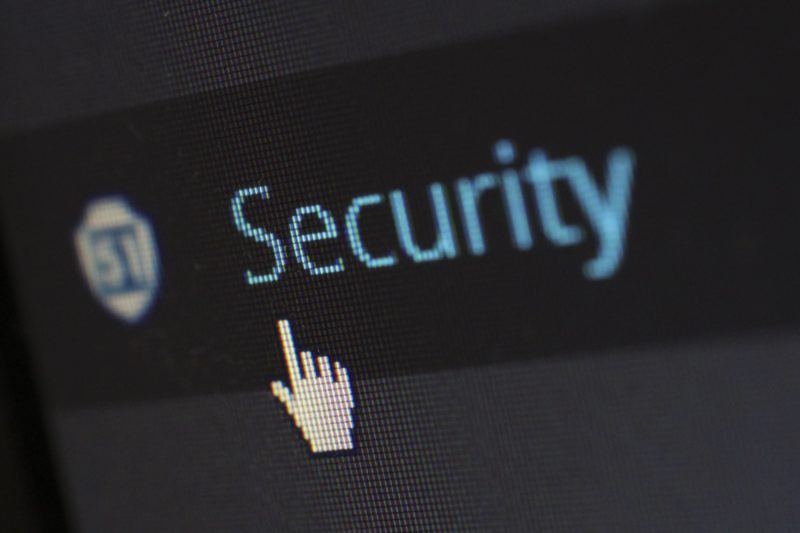
March 25, 2020
These Security Best Practices Have Never Been More Important
With more people working from home on their own networks/devices and placing more online orders than ever, securing your personal information and data has never been more important. The threat of cyber criminals looking to attack and steal the personal data of millions of people worldwide only increases by the day. It’s important to create a culture of security within your personal and professional exploits. There are several best practices that you can adopt to be sure that you mitigate your risk for identify theft or a breach of personal data.
Strong Passwords
You should always use strong, mixed-character passwords. Recent studies have shown that most security breaches are due to lost, stolen, or weak passwords. We recommend following a few simple steps to increase the security of your passwords. First, increase your password length. Longer passwords with a variety of characters (upper/lower case) can increase password combinations. For example, a sixteen character password provides more than 1 billion more password combinations than an 8 character password. More password combinations means less of a chance of falling victim to cracked passwords. Second, be sure to incorporate a mix of digits, letters, and special characters. Increasing the variety of character choices in your password also lowers the chance that your password can be cracked. When a password cracking program has to cycle through more than just the letters of the alphabet, it raises the amount of time that it has to spend generating possible passwords.
Multi-Layer Authentication
Two-factor authentication is a low cost, simple way of providing an extra layer of protection. Large tech companies such as Facebook, Google, and Microsoft employ this sort of dual-layer security. You may have seen this login flow in a recent login to a Google account if you have two factor authentication enabled in your account. When a login is detected, an email is sent to acknowledge that the login source was legitimate. Two factor authentication supplements password requirements by enacting an extra layer of authentication usually in the form of a numeric code sent by phone call, email, or text message. You then enter this code on the website or application where you are logging in. Additionally, companies like Microsoft employ an authenticator application. These apps generate a code using the current time and a secret key; you are required to enter the code along with your username and password.


Regularly Back Up Your Data
What if you become a victim of a security breach? Be sure to have regular, reliable backups of your data. What should you backup? Crucial files, spreadsheets, customer information, financial information, and sensitive data to name a few. Be sure to follow the data backup rule of three: have three copies of your data. Two copies of the data should be on different types of media (hard drive or cloud service). One copy of your data should be located offsite in a location such as a storage unit or a safe deposit box. Lastly, ensure the accuracy of your data by backing up weekly, or even daily if your data changes frequently.
Mitigating Security Risks
There are several ways to mitigate the risks that are associated with security. Be sure to change passwords every sixty to ninety days and don’t use the same password for all of your logins. Using the same password for most of your logins means you are at a greater risk for multiple accounts being compromised at the same time. Many websites will require that your new password not be recently used within the last four or five password choices. Be sure to keep your computer’s operating system up to date with the latest security patches. Don’t be afraid to use a password manager such as LastPass, Roboform, DashLane, or Nordpass. These can be trusted to protect your account logins thanks to secure encryption that keeps your passwords secret. Finally, avoid scams by learning to recognize them. Penn State’s Office of Information Security has seen a surge in malicious activity, a trend expected to continue in the coming weeks. You can view some of the current scams exploiting COVID-19 here.
Let Us Help
We specialize in building custom solutions crafted around the needs of your business. Our hand-picked, US-based software developers are security focused and are committed to providing your business with what it deserves. Browse what Flint Hills Group can provide for your business. When you choose Flint Hills Group, you choose a dedicated team of experienced US individuals whose focus is delivering a high quality and reliable product. Flint Hills Group is committed to using modern methods and technology so that your business can thrive. We can provide you with outsourced developers or an entire software team with a project manager. Be sure to read our reviews on Clutch, an independent platform for rating agencies. You can then review our process and request an estimate for your project.
Chris Gonzalez
Development Enthusiast
Chris is currently a Computer Science student at Western Governors University. He enjoys all aspects of software engineering and web development.




Chris Gonzalez
Development Enthusiast
Chris is a currently a Computer Science student at Western Governors University. He enjoys all aspects of software engineering and web development.

